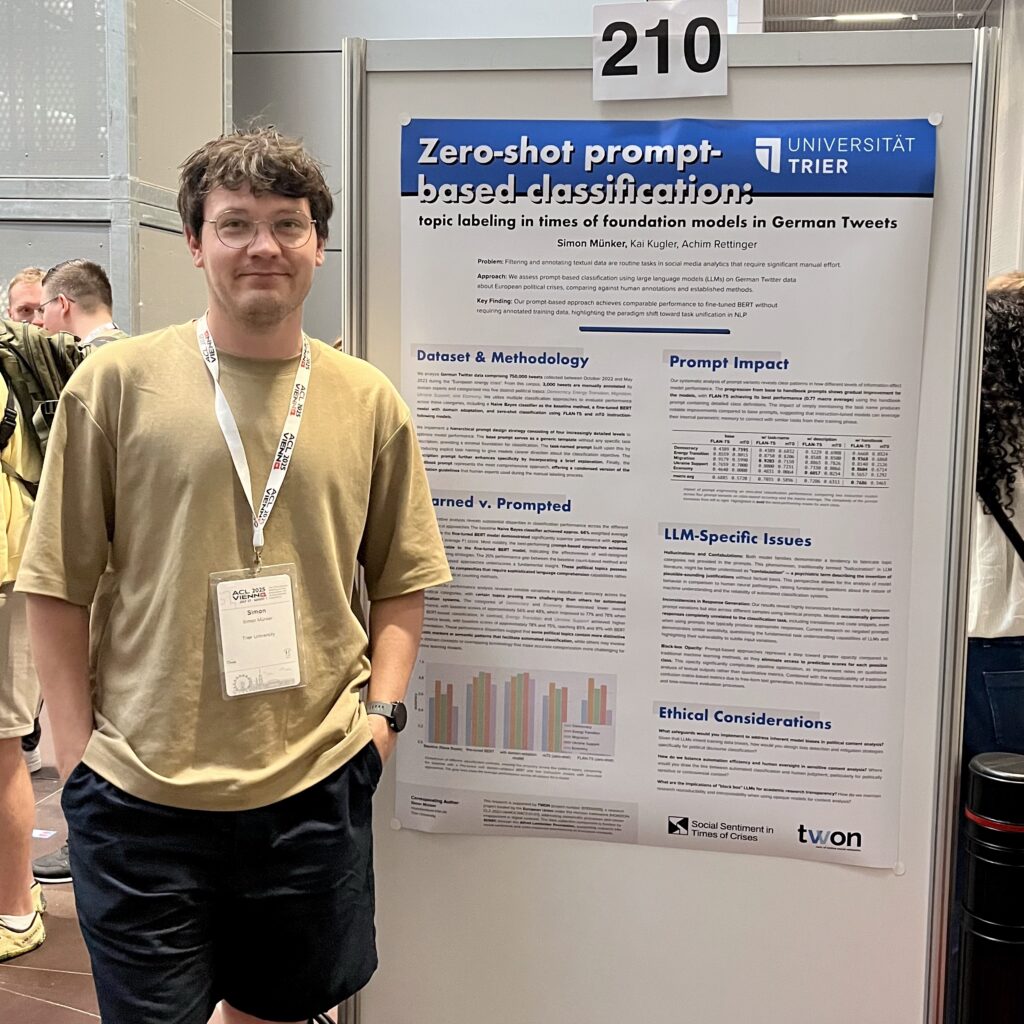Simon Münker recently presented his research on the use of zero-shot, prompt-based classification for analysing political discourse on German Twitter during the European energy crisis at the 2025 Association for Computational Linguistics Conference in Vienna. He gave a poster presentation and a talk about his newly published paper.
In their paper, Dr. Achim Rettinger, Kai Kugler and Simon Münker assess advancements in NLP, specifically large foundation models, for automating annotation processes on German Twitter data concerning European crises.
The study explores how recent advances in large language models (LLMs) can reduce the need for long manual work when labeling and categorizing social media content. Instead of training models with thousands of examples, LLMs can follow written prompts to classify tweets in a zero-shot setting, meaning without prior training on the specific task.
The dataset used was collected from a German Twitter dataset based on survey questions from the SOSEC project about the energy crisis in winter 2022/23. Two domain experts and native speakers annotated a random sample of around 7,000 tweets.
The models that were evaluated included: a baseline Naive Bayes classifier using token counts; a fine-tuned German-specific BERT transformer (“gbert-base”)- a model further adapted with additional pretraining on domain-specific tweets to improve domain relevance; and instruction-tuned models based on T5, which follow prompts to classify texts without domain-specific fine-tuning using zero-shot prompting techniques.
The results show that prompt-based approaches perform almost as well as fine-tuned BERT models. The study therefore concludes that a prompt-based approach can achieve comparable performance to fine-tuned BERT without requiring annotated training data.
However, the study also emphasizes limitations such as the inherited and potentially amplified biases present in the training data and differences in outcomes related to the language used (German/English), as well as cultural nuances.
Automating the analysis of political and social debates raises questions about the role AI can and should play in interpreting sensitive public discourse.


